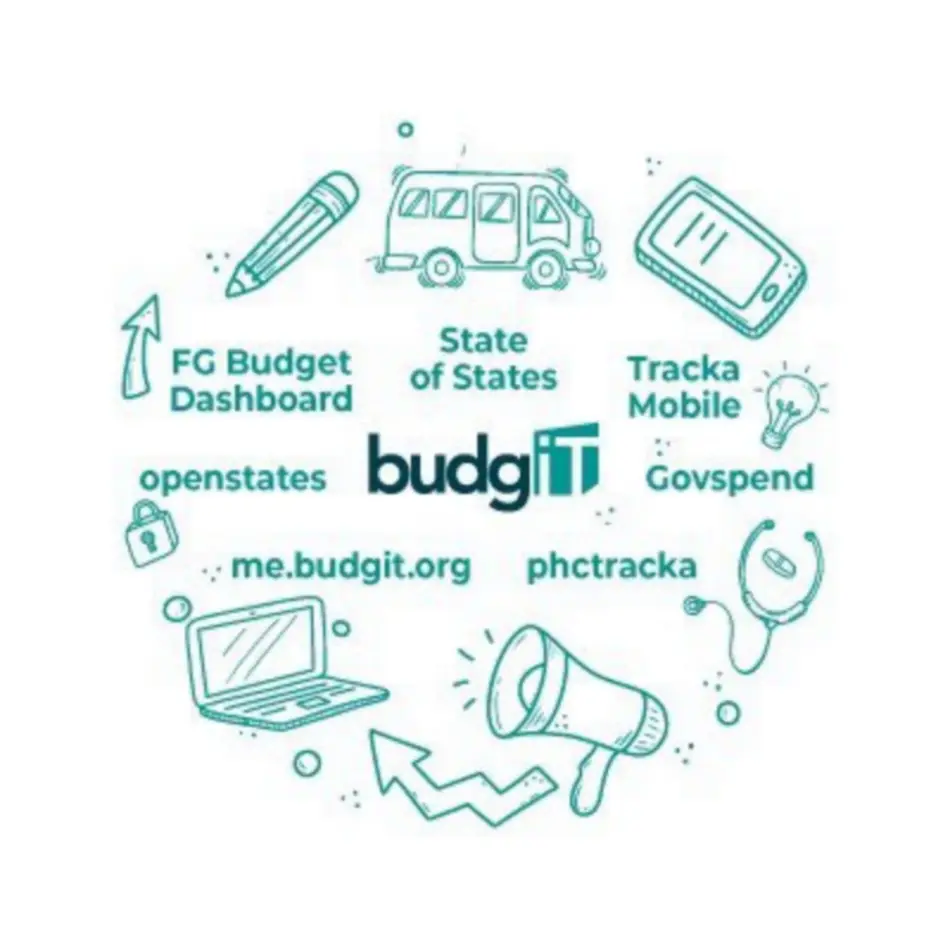August 21, 2025 – BudgIT, a civic-tech organisation focused on promoting transparency and accountability in Nigeria’s public finance system, has raised serious concerns over the refusal of the Federal Ministry of Finance, through the Budget Office, to publish the Quarterly Budget Implementation Reports.
The organisation described the action as a violation of statute, a disregard for established practice, and an erosion of the transparency reforms introduced by previous administrations.
According to BudgIT, the refusal of the finance ministry to make available quarterly reports on budget implementation runs against provisions of the Fiscal Responsibility Act, 2007. The law is clear under Part V, Budgetary Execution and Achievement of Targets, section 30, which states that: “The Minister of Finance shall cause the report (on the Implementation of the Annual Budget) prepared pursuant to subsection (1) of this section to be published in the mass and electronic media and on the Ministry of Finance website, not later than 30 days after the end of each quarter.”
BudgIT pointed out that previous administrations consistently adhered to this requirement by publishing at least three Budget Implementation Reports per fiscal year. However, under the current government, nearly four reports remain pending from the second quarter of 2024 to the second quarter of 2025. This marks almost a full fiscal year without a single publication of the reports.
Budget Implementation Reports are considered vital not only as a legal requirement but also as a benchmark for transparency and accountability. They provide proof of government spending, allowing stakeholders to assess the quality of budget implementation and the effectiveness of public service delivery. Public sector accounting standards emphasise the need for timely dissemination of financial information to ensure accountability and public engagement.
BudgIT criticised the decision of the Ministry of Finance and the Budget Office to withhold this crucial public document, noting that it undermines Nigeria’s commitment to transparent governance. The organisation argued that the current administration should have built on the progress of previous governments by expanding the publication of budgetary information. This could include making available the Federal Cash Plan Disbursement Schedule, which is required under section 26 of the Fiscal Responsibility Act.
The civic-tech group stressed that the failure to publish the reports is particularly troubling given that the federal government has concluded spending on the 2024 Appropriation. It remains unclear whether the supplementary budget for 2024 is still being implemented. Without the release of performance reports, private sector operators are denied important data for planning, civil society organisations and academic researchers lack information for advocacy and analysis, and the international community is unable to verify Nigeria’s compliance with accepted global standards in public finance management.
BudgIT further noted that the current administration’s disregard for transparency goes beyond the Quarterly Budget Implementation Reports. The organisation highlighted that Open Treasury.gov, which used to be the main platform for tracking federal government expenditure on a daily, weekly, monthly, quarterly and yearly basis, has not been updated since January 2025.
While Open Treasury was not without its flaws, such as missing data from certain Ministries, Departments and Agencies, broken links and machine readability issues, it was widely considered an important tool for transparency. The decision not to update the platform raises fresh concerns about the government’s commitment to accountability in public spending.
Commenting on the development, BudgIT’s Group Head of Research and Policy Advisory, Vahyala Kwaga, said the non-compliance of the Ministry of Finance and the Budget Office with established law and practice is discouraging.
“The ability of a government to hold itself accountable to its laws is not only to be expected of a democracy such as ours but is an indication of adherence to the rule of law. The non-publishing of crucial information by the Ministry of Finance and the Budget Office of the Federation should not be augmented by ‘pronouncements’ by the Minister/Director General in the media. It should be done by publishing financial information according to existing laws. Citizens and the general public have a right to know and a right to be informed,” Kwaga stated.
BudgIT emphasised that transparency and accountability are not optional but fundamental to the effective management of public funds. By failing to comply with the Fiscal Responsibility Act, the finance ministry and the budget office risk undermining confidence in Nigeria’s financial governance.
The organisation therefore called on the Ministry of Finance, the Budget Office of the Federation, and the President of the Federal Republic of Nigeria, Bola Ahmed Tinubu, to prioritise legal compliance, accountability and transparency in handling the nation’s finances.
It also urged civil society organisations, private sector stakeholders, academia and the international community to demand the urgent publication of expenditure performance reports for the 2024 budget. BudgIT noted that Nigerians have a legal right and civic responsibility to insist on access to financial information that directly affects public services, infrastructure delivery, and economic stability.
The organisation stressed that Nigeria’s credibility in international financial markets and global governance platforms depends heavily on its ability to meet basic standards of public finance disclosure. The withholding of financial reports and the neglect of transparency platforms, according to BudgIT, project Nigeria as a government unwilling to respect its own laws or global best practices.
BudgIT’s demand comes at a time when citizens are facing growing economic pressure from inflation, subsidy reforms and rising living costs. The organisation noted that transparency in government spending would help Nigerians better understand how public resources are being managed and provide evidence for holding leaders accountable.
“The public deserves access to financial information in order to evaluate how funds are allocated and utilised. This is not only a statutory duty of the government but also a moral responsibility to the people,” BudgIT added.
The civic-tech group concluded by stressing that the government should immediately release all pending Budget Implementation Reports and resume regular updates on public finance platforms.
It warned that the continued withholding of statutory financial information could further erode public trust and deepen the perception of weak governance structures in Nigeria.

